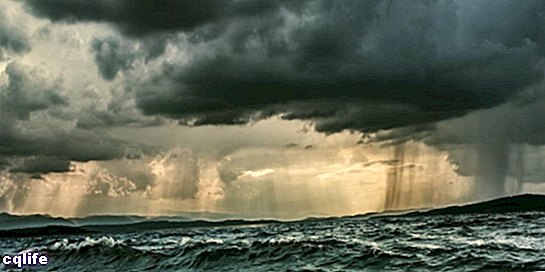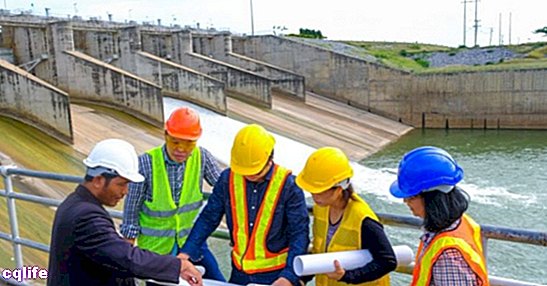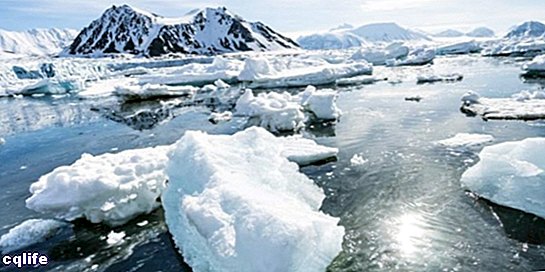- What is hydrology?
- History of hydrology
- Importance of hydrology
- What do hydrologists do?
- Applications of hydrology
- Branches of hydrology
We explain what hydrology is, its history, applications and branches. Also, why it is important and what hydrologists do.

What is hydrology?
Hydrology is the discipline scientist who studies waters of planet, the oceans, the atmosphere and the land surface. He is interested in the physical, chemical and mechanical properties of these waters, as well as their distribution, circulation and flow at a regional and global level. However, it does not occupy the underground water reserves, which correspond to hydrogeology.
Hydrology is the exhaustive study of water on our planet, differentiating itself from hydrography, which is limited to the study of the measurement and compilation of data hydrological and its transcription in a cartographic document. Although hydrology has a much broader field of study, it is possible in certain contexts to use both terms as synonyms.
The precise concept of hydrology has changed enormously over time, but in very broad strokes it can be understood as the science that studies the dynamics of water on the planet.
History of hydrology
The history of this discipline begins in the Antiquity, in the "speculative period", since the knowledge about the water and its cycles It was the result of the elucubrations of ancient naturalists, such as the Greeks Thales of Miletus (c. 624-546 BC), Plato (c. 427-347 BC) and Aristotle (384-322 BC) , or the Romans Seneca (4 BC - 65 AD) and Pliny "the Elder" (23-79 AD).
However, the speculative nature of this knowledge did not prevent the construction of the great water works of antiquity, such as the wells of Arabia, the Kanats of Persia or the irrigation systems and canals of ancient Rome and Egypt.
This stage is followed, during the Renaissance, an “observation period” characterized by the observation direct analysis of the behavior of water by scholars such as Leonardo da Vinci (1452-1519). Later on, a properly scientific stage began, known as "De Measure", in which the study of water began to be modernized and formalized.
This will be followed by the stages of experimentation (18th century), modernization (19th century) and empiricism (early 20th century). Knowledge about water and its capabilities and its management was modernized, until reaching the period of rationalization (mid-20th century).
Thus began to understand its vital importance not only as a biochemical element, but as a world-shaping force. The study of its impact on the weather, the relief, the geography and meteorology required theoretical and practical approaches, such as those that characterize the last period of hydrology: the period of theorizing, which begins in 1950 and ends in the present.
Importance of hydrology

Given the indisputable importance of water resources, as a source of drinking water, industrial resources and even source of Energy, hydrology as a science could not be more relevant, thus becoming an indispensable part of the great Projects architectural and industrial humanity.
It also represents an essential approach to geography, the climatology, the geology and the different civil engineering firms. Knowing the properties and behavior of water in its different stages and conditions is vital when planning economic activities or designing environmental strategies.
What do hydrologists do?
In a world where water is an increasingly scarce resource, the role of hydrologists in food industry, the farming, construction and labor ecological It couldn't be more important. That is why hydrologists, broadly speaking, are concerned with:
- Study the dynamics of flow and availability of water, so that productive initiatives (especially agricultural) can be located in the most convenient place.
- Propose ecologically sustainable solutions for the return of used water to its natural channels.
- Review the impact of various human initiatives on the ecosystem hydrological around it.
- Predict the behavior of surface water for a construction work infrastructure.
Applications of hydrology
Hydrology has numerous applications in the contemporary world, most of which have to do with the physical, chemical and mechanical understanding of water. Thus, it is possible to use hydrology in:
- Civil engineering works, such as dams, sewage systems, river embankments, etc.
- Ecological management tasks, such as cleaning rivers, lakes and lagoons, or studies on the presence of pollutants or physical damage to the hydrosphere. Also the ecological evaluation of industries that use water.
- Design of hydroelectric, wave power plants or the like.
- Design of contingency plans for the water erosion and evaluation of surface runoff.
- Flood control and massive forecasting water systems.
Branches of hydrology

Hydrology comprises numerous specialized branches, such as:
- Oceanography. The study of submarine systems in the oceans Y seas.
- Meteorology. The study of water in atmosphere and precipitation.
- Surface hydrology. The study of the behavior of waters in the Earth crust.
- Limnology. The specific study of the behavior of lakes.
- Potamology. The study of the behavior of rivers.
- Hydrogeology The study of groundwater and its geological role.
- Cryology. The study of waters in solid state: snows, ice, glaciers, etc.
